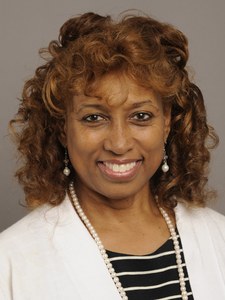By Rev. Dr. Angelique Walker-Smith
“I am Black and beautiful … the sun hath looked upon me ….” Song of Solomon 1:5a & 6a (New Revised Standard Version)
In approximately 1010 B.C.E., Solomon became the tenth son of King David (the second king of ancient, united Israel) and the second son of Bathsheba. Scholars of Blacks in the Bible trace her genealogy through her grandfather Ahithophel, David’s African counselor (II Samuel 11:3) and argue that Solomon was Black.
At the same time, scholars’ debate if Song of Solomon 1:5a & 6a is referring to Solomon or his bride. Still others query whether the reference is meant to be a mockery of being Black or a celebration of it, depending on the translation.
While these debates are quite important to debunking untruths or misunderstandings about Blackness and African heritage in the Bible, the lessons of leadership from persons like Solomon are also significant as we celebrate Black August 2022.
Like King Saul and King David, King Solomon reigned for 40 years in one of the highest and most prosperous periods in Israel’s history. Some scholars call it the “Golden Age” of Israel. Solomon’s leadership is credited for his ability to be wise, compassionate, people-oriented, diplomatic, creative, and innovative.
Black August provides an opportunity to remember and foster ancient and contemporary leadership like this. Black August is a season for uplifting the legacy of these gifts by and for people of Africa and of African Descent.
Black August also includes the celebration of these gifts on the International Day of People of African Descent. This year this day is complemented by the official launch of the Permanent Forum of People of African descent in December. This will happen after the 2022 United Nations Climate Change Conference, more commonly referred to as COP27, which will be held from 6-18 November 2022 in Sharm el-Sheikh, Egypt. This will be a timely moment when we consider climate change as a major cause of hunger and acknowledgement that Africa is dramatically and disproportionately affected by climate change.
People of Africa and of African Descent will have a key role in the leadership and participation at COP 27, as they have in the past. They will bring proposals of successful practices of adaptive strategies to climate. This includes the wise and results driven practice of agroecology. Agroecology is an approach that focuses on ecological farm management using low-cost, low-input methods that rely on a diversity of crops to improve soils and diets. Governments in Burkina Faso, Mali, and Senegal are working alongside farmer organizations to promote agroecology, including the subsidization of biofertilizers and other natural inputs as alternatives to synthetic fertilizers.
Bread for the World is and will be listening for more proposals like these as we seek to deepen our relationships with African faith leaders and European partners and learn from wise and innovative methods like these to advance our advocacy agenda together. Learn more at www.bread.org.
Angelique Walker-Smith is senior associate for Pan African and Orthodox Church engagement at Bread for the World





